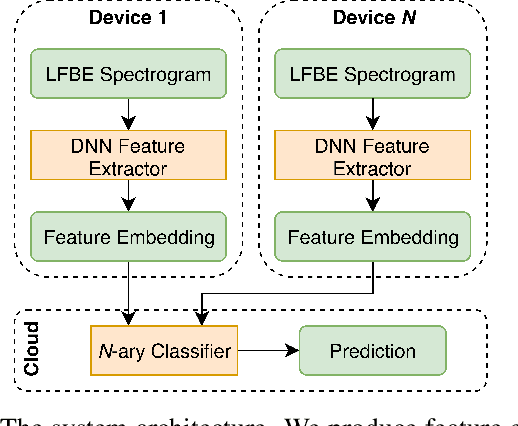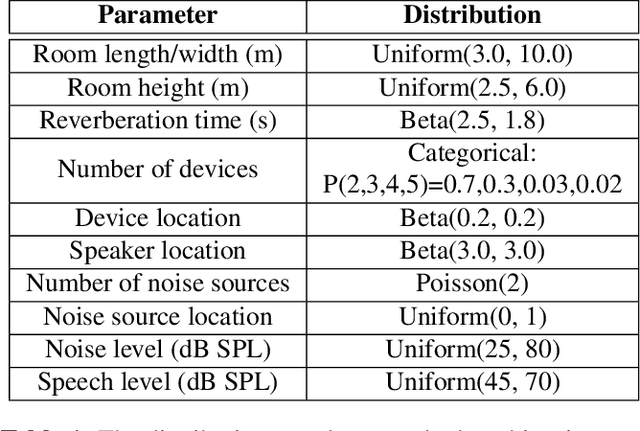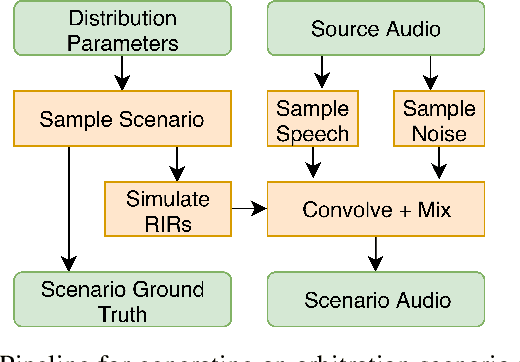End-to-end Alexa Device Arbitration
Paper and Code
Dec 08, 2021



We introduce a variant of the speaker localization problem, which we call device arbitration. In the device arbitration problem, a user utters a keyword that is detected by multiple distributed microphone arrays (smart home devices), and we want to determine which device was closest to the user. Rather than solving the full localization problem, we propose an end-to-end machine learning system. This system learns a feature embedding that is computed independently on each device. The embeddings from each device are then aggregated together to produce the final arbitration decision. We use a large-scale room simulation to generate training and evaluation data, and compare our system against a signal processing baseline.
* Submitted to ICASSP 2022
 Add to Chrome
Add to Chrome Add to Firefox
Add to Firefox Add to Edge
Add to Edge